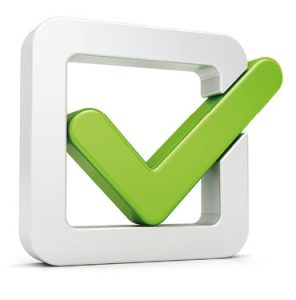 Company audits, whether for health and safety, compliance or accreditation for ISO or other standards are a vital part of the FM remit. Richard Theobold, Operations Director at Precision FM explains how an FM provider can help simplify the accreditation and auditing process
Company audits, whether for health and safety, compliance or accreditation for ISO or other standards are a vital part of the FM remit. Richard Theobold, Operations Director at Precision FM explains how an FM provider can help simplify the accreditation and auditing process
Facilities management, more than almost any field, is about planning and establishing clearly defined procedures for efficiency and compliance. A reputable FM supplier, likely holding its own accreditations, will be extremely familiar with the formal processes required to achieve these standards. They will almost certainly manage their FM work through a centralised Computer Aided Facilities Management (CAFM) system.
Gone are the days of filing cabinets groaning with thousands of service sheets for thousands of completed cleaning and maintenance tasks. Amongst other things, a CAFM system is an online portal that can ensure all your records, servicing schedules and invoices can be kept in one secure location making it easier to obtain any information or documentation you are asked to produce as part of an audit.
PROVE YOUR STUFF
There are real scenarios where the role of your facilities management provider is crucial in providing necessary data to demonstrate processes. For instance, if you’re looking to adhere to voluntary standards such as ISO 45001 then your FM provider will have documents saved on their systems that are pertinent.
During obligatory Health and Safety Inspections conducted by the HSE, the focus is on scrutinising both your compliance documentation and the physical condition of the site. You’ll want an FM firm that frequently documents and saves site activities, so you can easily demonstrate that you’re doing the job right.
You might opt to do a Health and Safety Audit, which though not mandatory, are increasingly popular among firms who want to demonstrate and ensure legal compliance. In these audits, either an internal manager or an external expert validates the systems and adherence to them, mainly concentrating on documentation.
 Don’t forget those times when you may need to undertake specific obligations, like PAT testing, you’ll need the documents in order then, too.
Don’t forget those times when you may need to undertake specific obligations, like PAT testing, you’ll need the documents in order then, too.
THE IMPORTANCE OF CAFM
A CAFM system can generate a range of reports that could be beneficial to your operations. For example, this software can populate a schedule for future planned preventative maintenance, including cleaning and sanitisation work. This forecasting and preparation for upcoming maintenance activities increase your likelihood of passing assessments.
You’ll naturally want a comprehensive record of all past and completed maintenance and sanitisation tasks. This historical data is crucial for reviewing past work and understanding the maintenance trajectory of your facilities and CAFM simplifies this process.
Consider an asset history report, which is invaluable for providing detailed maintenance information, outlining both completed and scheduled work. This level of detail aids in tracking the maintenance of each asset over time, with data being represented in ways that mean something to you.
Equally important is having full details of all staff and subcontractors who have entered or might enter your premises. This is essential for security, compliance, and coordination, ensuring you have a complete record of who is where and when. These reports, collectively, enhance your management and operational efficiency.
The key point is that full reports ought to be available at any time at the touch of a button. Your FM partner should always be ready to support you with necessary information to prove compliance in any related area.
ISO TIPS
A formal external audit is the final step in acquiring an ISO certification. ISO certificates are always issued with a limited lifespan, typically three years, necessitating regular audits and recertification.
Documentation is the cornerstone of any audit process. Good intentions and widely known but undocumented information won’t suffice. It’s essential to have everything properly recorded and documented. When it comes to certification or recertification, it’s crucial to begin preparation well in advance of the audit. This foresight ensures that you are thoroughly prepared when the time comes.
Equally important is having a staff member who is well-versed in the standard being audited. This individual should be capable of conducting an internal audit. Internal audits are a critical preparation tool that shapes your readiness for the external audit, which you must pass.
Any problems identified, whether in internal or external audits, must be promptly and effectively corrected. Remember to revisit these corrections after some time to ensure that the solutions have been effective and are still in place.
Your audit process should not only focus on identifying outright failures but also on pinpointing weaknesses. These are aspects of your process that, while not failing, could lead to failure in the future. Addressing these weaknesses proactively will naturally ensure smoother operations.
You can never be too prepared, so ensure you join up with an FM provider that can get you the documentation you need to pass assessments.
In association with www.precisionfm.co.uk





